Welcome to the Faculty of Social and Behavioural Sciences
Institute of Education and Child Studies
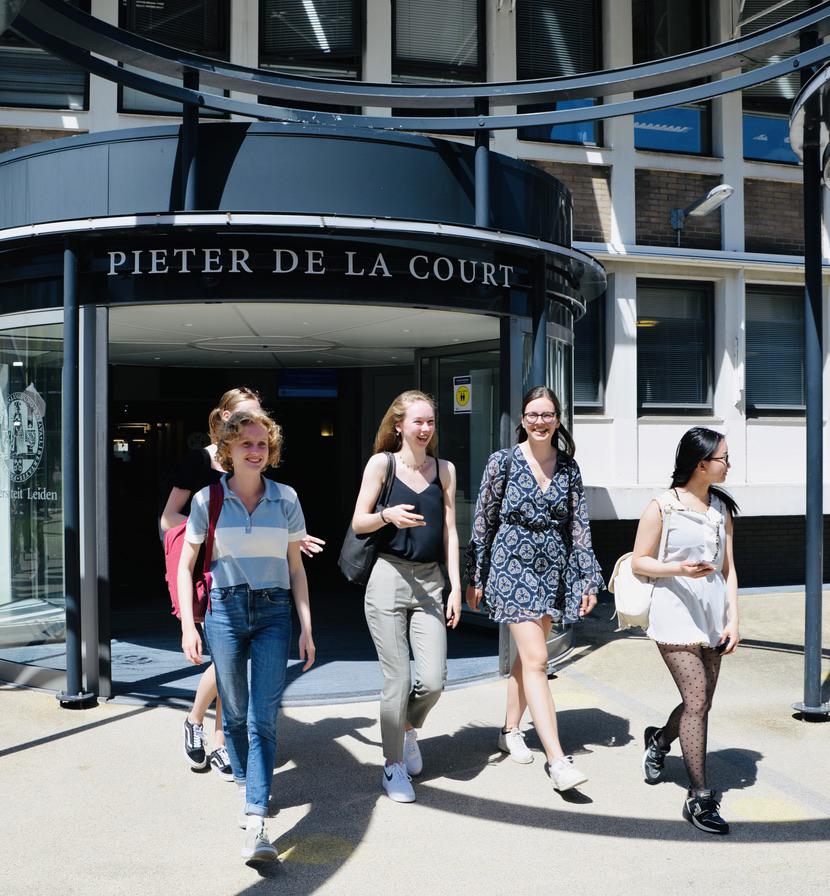
Discover the world at Leiden University
2 Preface ................................................................................................................................ 6 Pieter de la Court Building 6 Communication 7 Student ID card / LU-Card 7 ULCN-account .................................................................................................................... 7 uMail 7 uSis 7 Student website .................................................................................................................... 8 Prospectus ........................................................................................................................... 8 Brightspace 8 Leiden University app ......................................................................................................... 8 Services within the faculty 9 Student Services Centre ...................................................................................................... 9 Service desk ......................................................................................................................... 9 Computer help desk (ISSC) 9 Audiovisual Services ........................................................................................................... 10 Copy & Print Shop .............................................................................................................. 10 Library 10 Practical issues .................................................................................................................. 13 Wi-Fi 13 Copy, scans and print .......................................................................................................... 13 Computer work spaces ........................................................................................................ 13 Lockers 14 Other university buildings .................................................................................................. 14 Additional challenge 15 Bachelor’s students: Honours College 15 Master’s students: Leiden Leadership Programme ............................................................ 15 Master’s students: Master Hounours classes 15 Active co-participation 15 Study support on your faculty 17 Study Advisers 17 POPcorner ........................................................................................................................... 17 Ask a senior student ............................................................................................................ 17 Career Service 18 Master’s Thesis Lab .............................................................................................................. 18
contents
Table of
3 Student Support Services ............................................................................................... 19 Plexus Student Centre 19 Student counsellors 19 Student psychologists .......................................................................................................... 20 Mental well-being 20 Ombuds Officer 20 Fenestra Disability Centre .................................................................................................. 21 Housing 21 Mentor Network 21 Leiden University Study System .................................................................................... 23 Modes of instruction 23 Binding Study Advice ......................................................................................................... 23 Mentor/ Tutor system ......................................................................................................... 23 Exams 25 Plagiarism ............................................................................................................................ 26 Course and Examination Regulations ................................................................................ 26 Code of Conduct 27 Healthcare .......................................................................................................................... 28 General practitioner 28 Hospitals in Leiden ............................................................................................................. 28 Emergencies ........................................................................................................................ 28 Have fun in Leiden ............................................................................................................ 29 The Institute of Education and Child Studies 31 Organisation and governance ....................................................................................... 32 The Programme Board 32 Board of Examiners 32 Programme Committee ...................................................................................................... 33 Ethics Review Board ........................................................................................................... 33 Study advisors 34 Student Association ............................................................................................................ 35 Programmes 37 The Master’s programme .................................................................................................... 37 The Research Master’s Programme .................................................................................... 40
More about studying at Leiden University:
student.universiteitleiden.nl/en/
Would you like to know what’s going on?
universiteitleiden.nl/en/social-behavioural-sciences
leidensocialsciences
fswleiden
Faculty of Social and Behavioural Sciences
LeidenSocial
4
Preface
Dear student,
Welcome to the Faculty of Social and Behavioural Sciences (the FSW – pronounced F-SVay)! My name is Laura Boncz and I am the ‘assessor’ of this Faculty, which means that I am the student member of the Faculty Board. As the holder of the portfolio of student affairs, I represent the interests of all FSW students and express the students’ views in decision- and policy-making. Alongside this position, I am currently following the master’s specialisation Clinical Child and Adolescent Studies.
Starting university is always a special time. It goes without saying that the University as a whole, and the Faculty of Social and Behavioural Sciences in particular, will do everything in their power to make your start as smooth and fun as possible.
This booklet is to help you find your way at the FSW. It provides you with an overview of all the facilities, and a lot of practical information, such as contact details of departments and people you can turn to if you have questions or need help with anything. And don’t forget, you can always contact me if you are missing something or would like to improve your study.
The most important thing is for you to feel at home at the FSW. Because feeling at home in your degree programme, in the Faculty, and in the University as a whole is crucial for the success of your studies and your time as a student.
I sincerely hope to meet you soon in person. On behalf of the Faculty Board, I wish you much success and joy in your studies.
Laura Boncz Assessor
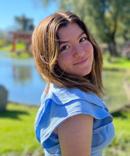
5
assessor@fsw.leidenuniv.nl
Pieter de la Court Building

The main building of the Faculty of Social and Behavioural Sciences is housed in the Pieter de la Court Building
Address
Wassenaarseweg 52, 2333 AK Leiden
Opening hours
Check the current opening hours on our website
The university will be closed on
u Monday 2 and Tuesday 3 October (Leidens Ontzet)
u Monday 25 December 2023-Monday 1 January 2024
u Friday 29 March 2024 (Good Friday)
u Monday 1 April 2024 (Eastern)
u Thursday 27 April 2024 (King’s Day)
u Thursday 9 and Friday 10 May 2024 (Ascension Day)
u Monday 22 May 2024 (Whitsun)
Find your way in our building
In the building the rooms are marked with four characters:
u The first one is which floor you are on
S = basement, 1 = first floor, and so on
u The second one is A or B
- the left side of the building is A, which is the side of the restaurant
- the right side of the building is B, which is the side of the library
- the sides and rooms connected to the central hall are C
u The last two numbers indicate the number of the room.
6
LU-Card
All students enrolled at Leiden University are required to have a LU-Card, which will give access to all university facilities, including all university libraries and printers.
ULCN-account
Leiden University students get a ULCN-account (ULCN = Universiteit Leiden Community Network) which gives you access to PCs, uMail, the digital learning environment Brightspace, digital library (uLip), uSis and MyStudymap. You need your ULCN-account to register for courses and exams in MyStudyMap.
uMail
Your Leiden University email address (uMail) will be used by lecturers and others to contact you. For that reason, it is very important to check your uMail regularly! It is possible to forward your uMail to your regular private email address. You can find more information about uMail and mail-forwarding here
MyStudymap
You will need your ULCN-account to get access. You can use MyStudymap to:
u check your schedule
u enrol and unenrol for examinations
u retrieve examination results
u enrol and unenrol for tutorials/seminars
u enrol and unenrol for courses
When you retrieve your examination results, you will see both your grade and the number of credits. You will also see any results you have obtained elsewhere if they have been passed on to your Institute.
uSis
You will need your ULCN-account to get access. You can use uSis to:
u change your contact information;
To find uSis go to: usis.leidenuniv.nl. Login with you ULCN account and personal password. If you still have questions contact the Student Services Centre (page 10).
7
Communication
Student’s website
The student’s website is an important source of information for students about everything that is going on in the University. Check it out to keep up with the latest university news, but also to find practical information about your studies, administrative matters, student life, careers, and the University’s organisational structure. In addition, the agenda lists courses and workshops you can take part in. And the website is also where you will find the latest updates. So make sure to check it regularly!

8
Prospectus
The Prospectus contains information about all the courses in your study programme. Here you can find detailed descriptions of courses, including the teachers, the schedule and the reading material.
Brightspace
The digital learning environment of Leiden University is called Brightspace. Each course you take will have its own Brightspace page, where you can find all kinds of information about the course, such as the timetable, reading lists (including lists of required reading), slides from lectures, announcements, and assignments. Teachers will assume that you check Brightspace regularly to keep up to date. If any updates are made to the course content, you will receive a notification in an email message – this will help you keep track.
Logging in
Go to the Brightspace homepage. Log in using your ULCN-account and your personal password. On the left you will see the list ‘My Courses’. These are the courses you currently have access to. If a course is not visible (or grayed out) in the list, then this course is not yet available in Brightspace.
Enrolling
You enrol for a course through MyStudymap. If you have registered for a course in MyStudyMap, you will also be given access to the course in Brightspace (once it becomes available). Are you a full-time first-year bachelor’s student, are you following a pre-master programme, or are you following courses whilst being registered at another Dutch university? If so, different enrolment procedures apply. You will receive further information by email.
Need help with Brightspace?
There are plenty of manuals available. You can access these manuals using the help links in Brightspace itself (in the blue bar under HELP).
Leiden University app
In this app, you can find all your personal study information in one place. Log in once and access your timetable, grades, PC availability and the latest news, anytime and anywhere.

9
Services within the faculty
Student Services Centre FSW
You can contact the Student Services Centre (SSC) for practical questions about your studies. The SSC can help you with:
u registration for courses and exams;
u transcript requests;
u questions about petitions;
u questions about your course history in uSis;
u information on diplomas and graduation;
u other questions - the SSC is the front office for students, so please don’t hesitate to contact us if you are not sure where to go.
The SSC has a digital colleague called OSCar. You can find OSCar on the university’s website, where it will gladly answer your questions.
Red counter (left) on the ground floor
Check the current opening hours on the website
ssc@leiden.edu
Student Services Centre
Service Desk
The Service Desk can help you with:
u booking lecture rooms (if necessary with audiovisual and ICT equipment), for instance if you need to discuss an assignment with your fellow students;
u borrowing cameras and voice recorders;
u reporting problems with printers or your LU-Card.
Red counter (right) on the ground floor
071-527 8989
servicedeskfsw@ufb.leidenuniv.nl
Computer helpdesk (ISSC)
The ISSC computer helpdesk provides help with ULCN-accounts and problems with hardware and/or software in the computer rooms.
Red counter (right) on the ground floor. Next to the Servicedesk.
071-527 8888
helpdesk@issc.leidenuniv.nl
10
Audiovisual Services
Audiovisual equipment (such as cameras, audio recorders, projectors) can be borrowed from the Service desk. If you have any questions about how to use the equipment, please contact the AV Services.
1B11
071-527 6536
av-fsw@ufb.leidenuniv.nl
Copy & Print Shop
Our Copy and Print Shop offers a range of services including digital services, reprographics, posters, DTP and print work. You can also pick up your ordered readers here. These services can be requested online or by visiting the shop in person. Also, they offer a small range of office supplies.
Red counter (right) on the ground floor. Next to the Service Desk.
Check the current opening hours on the website
071-527 3614
printshop@fsw.leidenuniv.nl
Printing and copying Library
You can use the Faculty Library to borrow books, but it also provides a quiet place to study. There are 210 study places (60 with computer) and a comfortable lounge area. You need your LU-Card to borrow books. If you would like to study in the library, you can
reserve a place, there are 2 time slots (9-13 and 14-18) from Monday till Friday.
Ground floor
Check the current opening hours on the website
071-527 3975
fsw@library.leidenuniv.nl
Library Social and Behavioural Sciences
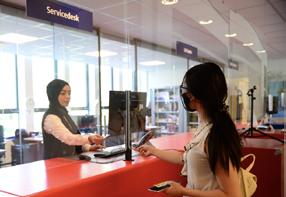
11

12
Practical issues
Wi-Fi
Do you want to access the internet on your mobile phone or laptop? Leiden University has two networks to choose from:
u Leiden University Wireless Network (LUWA). This is meant for temporary access to wireless internet. Access via your Leiden University account (‘ULCN-account’).
u Eduroam. The eduroam wifi is safer because all data is encrypted and eduroam gives you wifi-access in almost all universities and universities of applied sciences in the Netherlands, Europe and further afield. Once you have installed Eduroam, your devices will automatically connect whenever you are in a Leiden University building.
To enable access to the wireless network, laptops must be equipped with an up-to-date virus scanner.
Copy, scans and print
Printer Locations
Photocopiers/printers/scanners available to students are located all around the Pieter de la Court Building:
u opposite to the Service Desk on the ground floor
u SA17
u library FSW
u 1C85
u 6C86 (near Master Thesis Lab)
How to print
1. get yourself a LU-Card
2. top up your balance via the PinPoint in the central hall or online via
3. select the printer ‘LU-Card Printer’ and print your document.
4. go to any printer in the building and scan your LU-Card. Now you can print your document.
5. questions? Go to the red counter of the Copy & Printshop on the ground floor.
How to make a scan
Making a scan is free, but you do need your LU-Card. You can send your scans to your uMail or save it on an USB stick. You can find instructions on the printer.
13
Computer work spaces
In our Faculty, you will find 400 computer work spaces. They are available on floors 1 to 4 beside the stairs, and in rooms 1A26, 1A28, 1A30, 1A32, 1A46, 2B04, unless booked for courses. The computer areas in the basement are always accessible to students. All the computers have CD-ROM/USB-key facilities, bibliographic systems as well as the following programmes: Microsoft Office 365, Microsoft Edge, Google Chrome, SPSS en Adobe. Research software, e.g., Matlab is available in Room 1B02; movie editing software is available in 1A45. In addition, students can use computer facilities in other university buildings and at the University Library (Witte Singel 27) or the Plexus Student Centre (Kaiserstraat 25).

The available computer work spaces, and how to book them can you find on the LU-app.
Lockers
Lockers are located near the restaurant and in the library. There are also lockers on the 1st floor near room 1A20. For the 1st floor lockers you have to pick up a key at the Service desk.
Other university buildings
Some lectures or exams will be scheduled in other university buildings.
14
Additional challenge
Bachelor’s students: Honours College
Are you a bachelor’s student looking for an extra challenge in addition to your regular study programme? Motivated and ambitious students with a wide range of interests can apply for the Honours College of our own faculty or another faculty of Leiden University. As an Honours College student, you sample a wide range of academic disciplines and meet students from other degree programmes.
Within the track offered by our faculty, Science, Society and Self, you will learn how to apply your scientific knowledge to solve social issues. You will also pay attention to your own personal and professional development.
You can start in the second semester of your first academic year or at the start of your second academic year.
honoursfsw@fsw.leidenuniv.nl
Honours College
Master’s students: Leiden Leadership Programme
The International Leiden Leadership Programme (ILLP) is an honours programme (worth 5 EC) for master students. The programme takes place from January until June. You will join a small interdisciplinary class of international students and receive feedback and guidance from an experienced coach. The ILLP has a focus on skills and personal development.
leadership@ha.leidenuniv.nl
Leiden Leadership Programme
Master’s students: Master Honours classes
Master honours classes are extra curricular, small-scale and interdisciplinary courses in which you get to know both theory and practical lessons. in September you can register for the classes that start in November. You can register for classes in the second semester in February.
maclasses@ha.leidenuniv.nl
Master Honours classes
Active co-participation
During your degree course, you can participate in decision-making and advisory processes concerning the teaching at and organisation of the Faculty. For example, you can join the Faculty Council or a programme committee.
Website
15

16
Study support on your faculty
Study Advisers
The Study Adviser of your programme can help you with questions concerning:
u the content and scheduling of your programme
u your academic and study skills
u special arrangements for students with learning disabilities or special personal circumstances
u the rules regarding study delay
u binding Study Advice
For contact details of the Study Adviser from your programme, see last part of this brochure.
POPcorner
The POPcorner can help you with your personal development, finding your way around the faculty, making the best possible start and improving your sense of belonging.
The POPcorner offers:
u the ‘Smart studying’ walk-in clinic for practical study tips
u social studying group to study together with other students
u (online)workshops on studying effectively, planning and preparing for exams
u support with preventing and overcoming barriers that keep you from studying successfully
u study tips from other students
u individual support to help you make a good start and feeling at home
The POPcorner also organises the Daily Dutch course. This 12-week course is a great way to learn the basics of conversational and written Dutch, while getting better acquainted with Dutch culture.
Left red counter ground floor and walk-in hour every Thursday between 10:30-12:30.
071-527 8846
popcorner@fsw.leidenuniv.nl
POPcorner
Ask a senior student
If you would like to have advice from a senior student you can register for our Buddy System. Your Buddy can give you advice on how to prepare for an exam or introduce you to fun activities at the university.
buddysysteem@fsw.leidenuniv.nl
Buddy System
17
Career Service and Community Engagement Service

The Career Service offers advice and support if you have any questions about your choice of master programme, career (academic or otherwise), and the transition to the job market. They can check your cv and LinkedIn profile, help you with your motivation letter and with finding an internship or job. You can also discuss with them what you can do during your studies to build up your cv.
The Community Engagement Service offers you advice and support if you have questions regarding relevant extra-curricular job experience, especially volunteer work.
Workshops / events
Career events and workshops are organised regularly. Check out the workshop calendar.
Left red counter ground floor
Career Service
071-527 3840
slsfsw@fsw.leidenuniv.nl
Career Zone
Community Engagement Service
Master’s Thesis Lab
Faculty (research)master’s students can register for the Master’s Thesis Lab to get additional support while writing their master’s thesis. Permission from the thesis supervisor is necessary before registration.
The lab offers various facilities, such as 22 work spaces, books, a Thesis Lab assistant, statistical advisers and library advisers.
071-527 3851
scriptieatelier@fsw.leidenuniv.nl
Master Thesis Lab
18
Student Support Services
Plexus Student Centre
The goal of Plexus is to offer optimal services to students of Leiden University. Plexus houses the Student Information Centre help desks, the university shop, lecture rooms, meeting facilities, a gym, and other student support facilities such as the ombuds officer, Career Service, student counsellors and student psychologists. Plexus is also home to many student organisations and the Meeting Point, a centre for students with a refugee background. The International House, with its common room and range of internationally-orientated student associations, can also be found at Plexus.
Kaiserstraat 25, Leiden

Check the current opening hours on the website
071-527 8011
Student counsellors
Student counsellors can answer questions and provide guidance in situations involving regulations and legal provisions. All meetings with student counsellors are strictly confidential.
You can turn to a student counsellor with any questions or problems you might have concerning:
Exceptional circumstances
u combining studying with top-level sport
u studying with a disability
u studying and pregnancy / studying with children
Academic delay
u delays to your studies caused by personal circumstances
u issues concerning binding study advice (BSA)
In cases of academic delay, first speak to your study adviser.
19
Student psychologists
If you are experiencing study-related or personal problems, you can make an appointment with one of our student psychologists through the online appointment system on the website. The first appointment is a maximum of 30 minutes. For students of Leiden University, these sessions are free of charge.
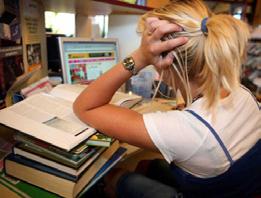
Plexus, Kaiserstraat 25 Leiden
071-527 8026
psychologen@sea.leidenuniv.nl
Student psychologists
Mental well-being
Are you feeling isolated, lonely and anxious? Do you want to form new connections with fellow students? Join one of the Student Support Groups! You can also contact the Leiden University Student Helpline, which is available from Monday to Friday from 09:00h till 17:00h.
In addition to the Student Helpline, there is also the National Listening Phone that you can call 24/7 for a listening ear. For all these options, visit:
Mental well being
Ombuds officer
The ombuds officer deals with complaints from students who feel they have been improperly treated by an university staff member or body. By improper treatment is meant treatment that is unfair, contravenes regulations, shows a lack of respect, or is experienced as unpleasant or detrimental in some way by the student.
071-527 3657/8026
ombudsfunctionaris@leidenuniv.nl
Ombuds officer
20
Fenestra Disability Centre
Studying with a disability (for example visual or physical disability, language or speech disorder, chronic or psychological illness) may require additional time and effort. The Fenestra Disability Centre gives you advice on additional support available.
Plexus, Kaiserstraat 25 Leiden
071-527 8025
fenestra@plexus.leidenuniv.nl
Fenestra Disability Centre
Housing
If you have questions about your housing application, financial matters, contract-related issues or signing tenancy contracts, etc., you can contact the Housing Office Desk.
Plexus, Kaiserstraat 25 Leiden
071-527 5330
Housing
Mentor Network
The Mentor Network is an online portal that allows you to get in touch with alumni (former students of Leiden University). You ask an alumnus advice concerning career and job applications or specific information about organisations or positions.
careerservices@sea.leiden
Mentor Network

21

22
Leiden University Study System
Modes of instruction
There are two important ways in which course material is presented: via lectures, and via work groups. A work group is a small group in which you will discuss the theory more deeply. In addition to the ‘contact hours’, you are expected to spend time on independent study (reading books and articles; writing papers and preparing oral presentations).
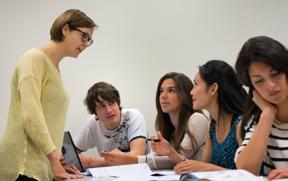
Binding Study Advice
As a bachelor’s student at Leiden University you are entitled to good education and academic guidance. In return you are expected to meet certain academic requirements: the so-called Binding Study Advice (BSA) requirements. A full-time student is required to have completed a minimum of 45 study credits (out of 60) by the end of his or her first year of enrolment (specific programmes may have additional requirements). This means that at the end of the first year, full-time students receive binding advice as to whether they can continue their studies. In the course of the first year, students will be given regular feedback on their progress by the Study Advisers.
In formulating the BSA, any relevant circumstances, such as illness or other personal factors will, of course, be taken into account. If you receive a negative BSA, you will not be allowed to enrol for the same study programme at Leiden University for a period of four years.
Mentor/ Tutor system
First year bachelor students are assigned to a Mentor/Tutor group, with a student and a professor as your mentors/tutors. They give advice and help you find your way, both academically and personally and provide you with practical information, such as how to register for exams. Your Mentor/Tutor is your first point of contact should you encounter academic or personal problems. If required, he or she can refer you to other individuals or organisations for further assistance such as the study adviser, student psychologist, Plexus and more.
First-year Master students are assigned a coach. More information will be provided by your study programme.
23

24
Exams
Taking exams well is a skill you can learn. It requires good preparation and the right strategy. An open-book exam requires a very different approach to a multiple-choice exam. On the following website you will find tips that might come in handy for revising and during the exam itself.
Many exams, especially in the bachelor’s programmes, are given in a multiple choice format. If you are not used to taking such exams, you can contact your Study Adviser for some tips.
The timetable and location for the exams are published in MyStudymap, the Prospectus and via the students’ website. According to Dutch legislation, the university is not allowed to return exams or papers. If you wish to inspect your exam script, this must take place within 30 days of the announcement of the results.
Registration & de-registration
Examination Resits
If you have failed an examination it is possible to resit it. The resit period differs per programme. Students may only take a resit for a partial grade if their grade is lower than a 5.5. It is not possible to take resits to improve a passing grade.

Registration
Students are responsible for registering for exams. You can register via MyStudymap from 100 calendar days before the date of the examination to 10 calendar days before the date of the examination. After this deadline, registration is no longer possible. Please note that exam registration is separate from course registration!
ID during exams
You must present a valid ID and your Leiden University student card (this is not your LUCard!) at all examinations. If you can not identify yourself during an exam, your exam is invalid and will not be graded.
25
Results
Examination results are published in uSis within 15 working days after the exam date.
Examination dates
It is not possible to deviate from the set schedule for examinations and/or re-sits. Students should take the examination dates into account when planning their journey back home. Note that examinations can be held even on the last day before a holiday.
Grading system
Within the Dutch grading system, courses are graded on a scale from 1 to 10. The formal designation of the grades is as follows:
10: Excellent (flawless; 100%)
9: Very good
8: Good
7: Satisfactory
6: Pass
5 (or lower): Fail
The lowest pass grade is 6, while grades 9 and 10 are rarely given.
Plagiarism
Plagiarism is strictly forbidden at Leiden University and is understood as presenting, intentionally or otherwise, someone else’s words, thoughts, analyses, argumentations, pictures, techniques, computer programmes, etc., as your own work. Re-submitting or copying parts of your own work, for which you have already received credits, is also considered plagiarism. In the regulations on plagiarism you will read what the university means by plagiarism and what the possible consequences of plagiarism are.
Course and Examination Regulations
The Course and Examination Regulations describe the content of your programme and the specialisations within the programme. They also define the achievement levels of your programme. Furthermore, they contain regulations on examinations and the order in which courses should be taken. In this way, the Course and Examination Regulations provide you with the rules you need to comply with in order to complete your studies. The regulations differ per programme.
26
Code of Conduct
The Code of Conduct is applied by Leiden University in the context of providing a safe and non-discriminatory work and study environment. The Code of Conduct applies to all contact between lecturers and students of Leiden University, both in the context of professional activities or study activities, and outside these contexts.

Undesirable behaviour
If you have encountered undesirable behaviour, you can turn to one of the confidential counsellors:
Mr. Ramon Kuipers or Mrs. Mehrnoush Golafshan
+31 6 1146 7783 or +31 6 2504 2886
rkuipers@winstonpartners.nl or mgolafshan@winstonpartners.nl
27
All students are obliged to have a health insurance to cover any medical costs incurred during their stay. This is a legal requirement for all temporary and permanent residents in The Netherlands. We hope it will not be necessary, but if you should need medical assistance whilst living and studying in Leiden you can find the necessary contact information on our website.
General practitioner
We strongly advise you to register with a General practioner (GP or ‘huisarts’ in Dutch) while you are studying here. GPs can only see you for a consultation if you are registered with them. You also need a GP for a referral to a hospital or specialist. You can only go to a hospital without a referral from a GP in emergency situations.
We recommend the GP practice mentioned below; they accept new patients and have experience with international students.
Huisartsenpraktijk Boshuizen
A. Noordewierlaan 58, Leiden
071-531 0047
info@praktijkboshuizen.nl
praktijkboshuizen.nl
Hospitals in Leiden
u Leiden University Medical Centre (LUMC)
Albinusdreef 2, Leiden
071-526 9111
u Alrijne hospital
Houtlaan 55, Leiden
071-517 8178
u Alrijne hospital
Simon Smitweg 1, Leiderdorp
071-582 8282
Emergencies
The emergency telephone number in the Netherlands (ambulance, police, fire service) is 112. If you need to contact the police and it is not an emergency, you can call 0900-8844.
28
Healthcare
Have fun in Leiden
Of course, student life is not just about studying. Find out where you can grab a sandwich or enjoy a good meal after lectures. And take the time to enjoy the culture Leiden has to offer.

Student recreation
If you would like to like find out more about the city of Leiden, what’s on, and what to see and do, see: Leiden, Key to Discoveries
University Sports Centre (USC)
How about a workout at the University Sports Centre to recharge your batteries? The USC offers a wide variety of sports. Membership allows you unlimited use of fitness equipment and you can take any group class you want.
You can also join a student sport association. The associations provide a strong social environment in which you meet a lot of new people during sporting challenges on many different levels like badminton, basketball, running, tennis, swimming etc.
Einsteinweg 6, Leiden
29 29

30
The Institute of Education and Child Studies
Welcome to the Institute of Education and Child Studies! This prospectus contains a short description of the Master’s programmes and of the organisation of the institute of Education and Child Studies. Furthermore, data are included of people who can help with any questions and addresses of useful internet sites.
This prospectus is intended as a first introduction to the education the institute provides. It is important that you are well informed about everything that has to do with education. Therefore, in addition to this prospectus, please consult the following information sources regularly:
u the website;
u Prospectus (with descriptions of content and organisation of all courses);
u Brightspace (digital learning environment to support education);
u the special prospectuses about the Master’s Project Education and Child Studies and the Master’s Internship Education and Child Studies
31
Organisation and governance
The Institute of Education and Child Studies is responsible for the Master’s programmes. The academic staff of the institute provide education and conduct research in the field of Education and Child Studies. They also have a task in the field of social services (for example advising on the treatment of children with psychosocial problems or developmental disorders, or advising on research and policy questions outside the university).
The Programme Board
The programmes of the Institute of Education and Child Studies are managed by the Programme Board.
The members of the Programme Board are:
u dr. Marielle Linting (director of studies)
u prof. dr. Lenneke Alink (scientific director)
u dr. Peter Bos (director of research)
u Carolien Jongenotter (studentmember)
Support staff:
u Alyt Klomp MSc (advisor)
u drs. Esther Truijen (secretary)
Board of Examiners
The Board of Examiners is responsible for administering the exams and organizing and coordinating the examinations. It establishes rules for the course of affairs during examinations and is heard about the Course and Examination Regulations (OER), before they are passed in the faculty council. The Examination Board is also responsible for ensuring the quality of tests and examinations.
The members of the Board of Examiners are:
u dr. Harriet Vermeer (chair)
u dr. Lenny van Rosmalen (vice-chair)
u dr. Suzanne Mol (member)
u dr. Whitney de Haan MSc (member)
u dr. Harold Nefs (member)
u Dr. Arnout Koornneef (member)
u Dr. Jeanine Baartmans (member)
The Examination Committee meets once a month; the meeting schedule can be found on the website. All correspondence can be addressed to the secretary by e-mail:
Email: examencommped@fsw.leidenuniv.nl
32
Programme Committee
The Programme Committee of the Institute of Education and Child Studies advises the Institute and Faculty Council about everything that concerns education. Furthermore, the Programme Committee actively contributes to quality assurance of the Institute’s Bachelor’s and Master’s programmes. Both staff and students are represented in the Programme Committee. The Programme Committee consists of six student members and six teacher members.
The members of the Programme Committee are:
u dr. Daisy Smeets (chair)
u dr. Petra Barneveld (staff member)
u dr. Marije Stoltenborgh (staff member)
u dr. Whitney de Haan MSc (staff member)
u Iris Broeckx MSc (staff member)
u dr. Anja van der Voort (staff member)
u dr. Sabine van der Asdonk (staff member)
u Eva Bergen (studentmember)
u Birte van der Heide (studentmember)

u Annelore Steenbergen (studentmember)
u Kikki Koppers (studentmember)
u Lisa van Velzen (studentmember)
u Nathan van Scheppingen (studentmember)
u Leonie Wolswinkel-van Dijkhuizen (secretary)
Student members Programme Committee
The student members of the Programme Committee aim among other things to represent the interests of all students of the Institute of Education and Child Studies as well as possible. Students with questions and comments about or criticism of the educational programmes can contact them. On Brightspace is a site of the Programme Committee with a forum where students can ask questions and comment. The questions are answered by student members of the Programme Committee.
The composition of the Programme Committee will change as of 1 September 2023. You can visit the website for the new composition.
Ethics Review Board
The Ethics Review Board of the Institute of Education and Child Studies oversees the ethical approval procedures for research conducted within the institute. Research must be reviewed by the Ethics Committee before it is carried out. The main task of the Ethics Review Board is to evaluate proposed research according to the criteria for conducting ethically sound research.
33
Study advisors
The study advisors inform students about and guide them in a successful course of their education. In practice this means: informing individually and collectively about choices that occur during the study, making study schedules and helping to solve problems that slow study progress.
Jolanda den Heijer
4A07
071-527 4046
studieadviseurspedagogiek@fsw.leidenuniv.nl
Jacquy Bouwer
4A05a
071-527 4072
jabouwer@fsw.leidenuniv.nl
The study advisors can be reached, except via their personal mail, on: studieadviseurspedagogiek@fsw.leidenuniv.nl
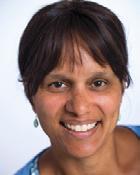
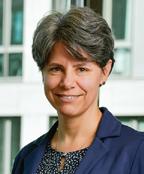
34
Student Association
General Study Association For Students In Education And Child Studies
Emile is the study association for all students in Education and Child Studies. The aim of the association is to provide additional support for the study by organizing study-related and non-study related activities. With, for example, excursions to educational institutions and a study trip, Emile tries to intensify the contacts between teachers and students, but also to connect theory with practice. If you become a member of Emile, you receive a 10% discount on your textbooks.
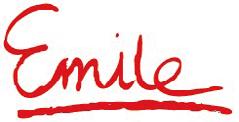
SB05
071-527 3685
emile@fsw.leidenuniv.nl
Study Association Emile
35
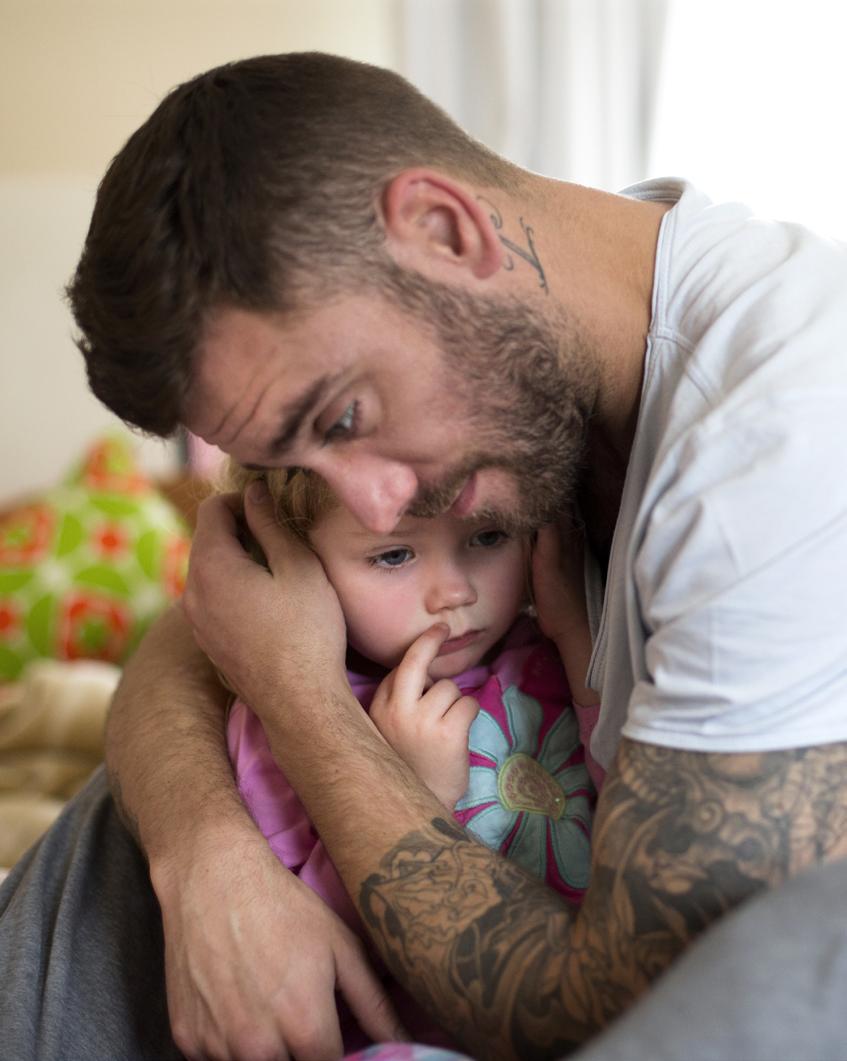
36
Programmes
The Institute of Education and Child Studies offers two Master’s Degree Programmes in English:
u The Master’s programme Education and Child Studies (five specialisations);
u The Research Master Developmental Psychopathology in Education and Child Studies.
The Master’s programme Education and Child Studies 2023-2024 (specialisations in English)
This Master’s programme consists of one year (60 ec). The Master’s programme consists of a Master’s Internship, a Master’s project and courses in the specialisation that you have chosen. Detailed descriptions of the content of these specialisations can be found in the Prospectus. All information about the organisation, guidance and assessment of the Master’s Internship and Master’s project can be found in the Prospectus Master’s Internship and the Prospectus Master’s Project
Below you can find a detailed programme overview of each specialisation.
Parenting and child development*
37
First semester Second semester Bloc 1 Bloc 2 Bloc 3 Bloc 4 Practice of empirical research 5 ec Internship Parenting and child development 5 ec Internship Parenting and child development 5 ec Internship Parenting and child development 5 ec Prevention and intervention programmes in families: development and implementation 5 ec Attachment, parenting and development: research and clinical implications 5 ec Masterproject 10 ec Masterproject 10 ec Digital media in the family: opportunities and challenges 5 ec Child care, experts, and parents: historical trends 5 ec *Order courses upon starting in September: bloc 1, 2, 3, 4. Order courses upon starting in February: bloc 3, 4, 1, 2.
Educational science*
*Order courses upon starting in September: bloc 1, 2, 3, 4. Order courses upon starting in February: bloc 3, 4, 1, 2.
Applied Neuroscience in Human Development (ANHD)*
*Order courses upon starting in September: bloc 1, 2, 3, 4. Order courses upon starting in February: bloc 3, 4, 1, 2.
38
First semester Second semester Bloc 1 Bloc 2 Bloc 3 Bloc 4 Practice of empirical research 5 ec Learning and ongoing evaluation of learning or Digital thinking skills in education 5 ec Learning and instruction 5 ec Developing educational practices 5 ec Learning, cognition and the brain 5 ec Internship Educational science 5 ec Internship Educational science 10 ec Masterproject 10 ec Masterproject 10 ec
First semester Second semester Bloc 1 Bloc 2 Bloc 3 Bloc 4 Practice of empirical research 5 ec Neuroscience (Clinical assessment and treatment) 5 ec Child abuse and neglect 5 ec Masterproject 15 ec Learning, cognition and the brain 5 ec Methods and instruments in cognitive and affective neuroscience 5 ec Developmental clinical neuroscience 5 ec Research internship ANHD 10 ec Masterproject 5 ec
Digital Media in Human Development (DMHD)*
*Order courses upon starting in September: bloc 1, 2, 3, 4. Order courses upon starting in
Learning problems and impairments (international track)*
*Order courses upon starting in September: bloc 1, 2, 3, 4. Order courses upon starting in February: bloc 3, 4,
39
First semester Second semester Bloc 1 Bloc 2 Bloc 3 Bloc 4 Practice of empirical research 5 ec Digital thinking skills in education 5 ec Internship DMHD 10 ec Digital media in the family: opportunities and challenges 5 ec Digital applications in mental health 5 ec Internship DMHD 5 ec Masterproject 5 ec The learning child in a digital world 5 ec Masterproject 5 ec Masterproject 10 ec
February:
1, 2.
bloc 3, 4,
First semester Second semester Bloc 1 Bloc 2 Bloc 3 Bloc 4 Practice of empirical research 5 ec Learning disabilities: a neuro-behavioural approach 5 ec Internship Learning problems and impairments (international track) 10 ec Learning, cognition and the brain 5 ec Learning and ongoing evaluation of learning 5 ec Learning and instruction 5 ec Internship Learning problems and impairments (international track) 5 ec Masterproject 5 ec Masterproject 10 ec
1,
2.
The Master’s programme Education and Child Studies (Research) 2023-2024
This Master’s programme consists of two years (120 ec). The programme contains courses in the field of research methods and statistics, substantive subjects, profile courses and a a Research Master thesis and a Research Master internship.
40 First year First semester Second semester Bloc 1 Bloc 2 Bloc 3 Bloc 4 Conducting and evaluating empirical research 5 ec Designing research for science and society 5 ec Recent issues and advances in Education and Child Studies 5 ec Test theory and scale development 5 ec Presenting research and academic writing 5 ec Methods and instruments in cognitive and affective neuroscience 5 ec Small sample size approaches in relational and intervention designs 5 ec Applied multivariate data analysis (spring) 5 ec Profile 5 ec Profile 5 ec Research Master thesis 10 ec
Second year
41
First semester Second semester Bloc 1 Bloc 2 Bloc 3 Bloc 4 Research Master thesis 5 ec Research Master thesis 5 ec Research colloquia 30 ec Research Master internship 15 ec Profile 5 ec Profile 5 ec Profile 5 ec Applied multivariate data analysis (fall) 5 ec Research Master internship 5 ec
Some Dutch words and phrases to help you make your way around:
Dag, doei: Goodbye (friendly)
Hallo, hoi: Hello
Prima!: Alright! Let’s do it!
Ja: Yes
Nee: No
Tot ziens: Goodbye (formal)
Patat met: Chips/fries with… (mayonnaise, ketchup etc.)
Gezondheid: Bless you (when sneezing or coughing)
Proost: Cheers
Gefeliciteerd: Congratulations
Veel succes: Good luck!
Gezellig: Fun, nice, cosy; used to describe a good time with good company in nice surroundings
Leuk: Nice, like óh’nice!’
Fijn: Nice, good
Dank je wel, Bedankt: Thank you
Lekker: Yummy, tasty, delicious, nice, used to describe food, weather
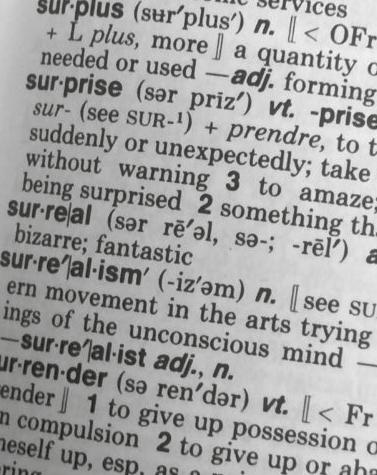
Beterschap: Get well soon
Mooi: Pretty, good
Alsjeblieft: Please, and also here you are
42



























